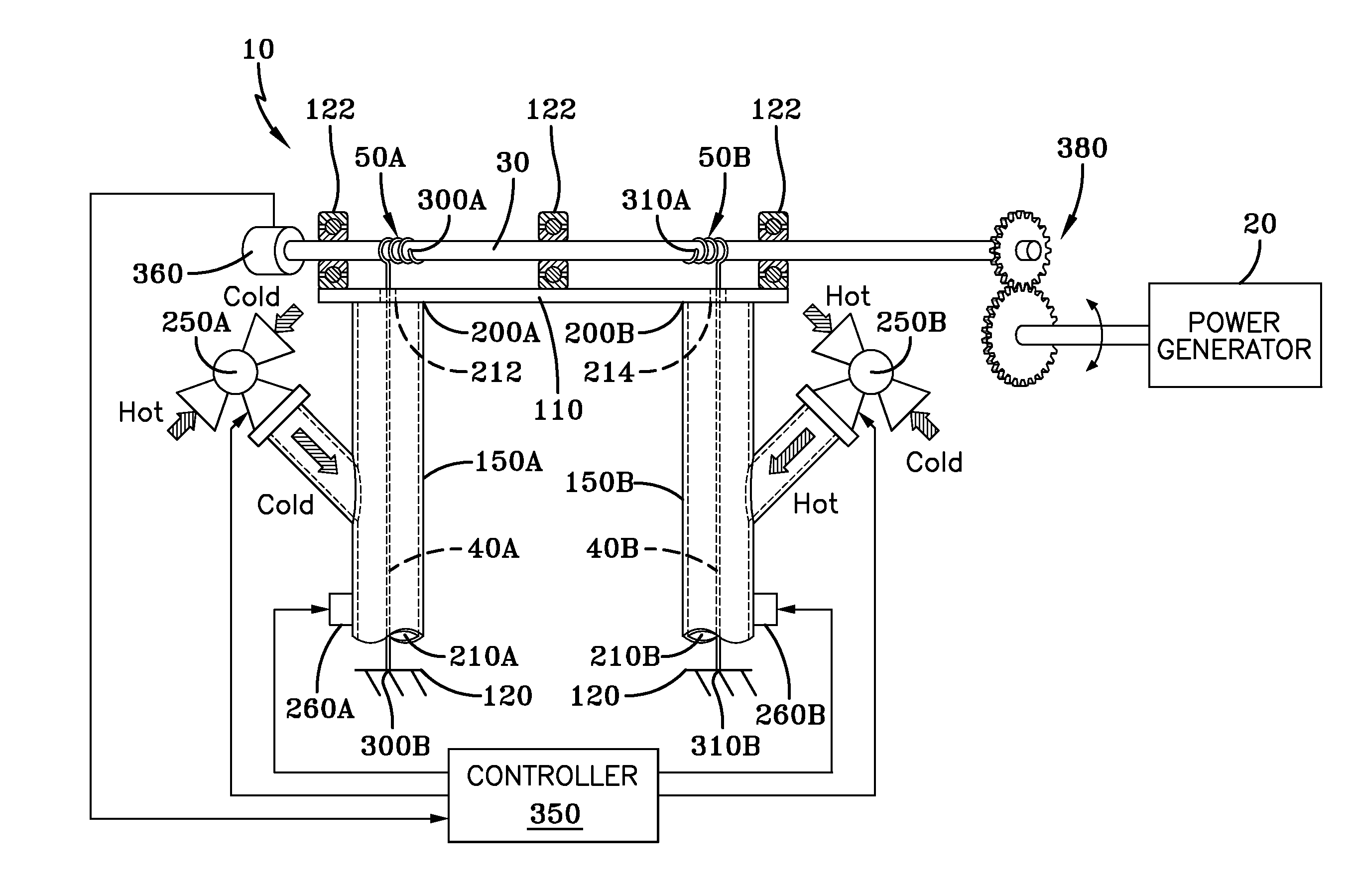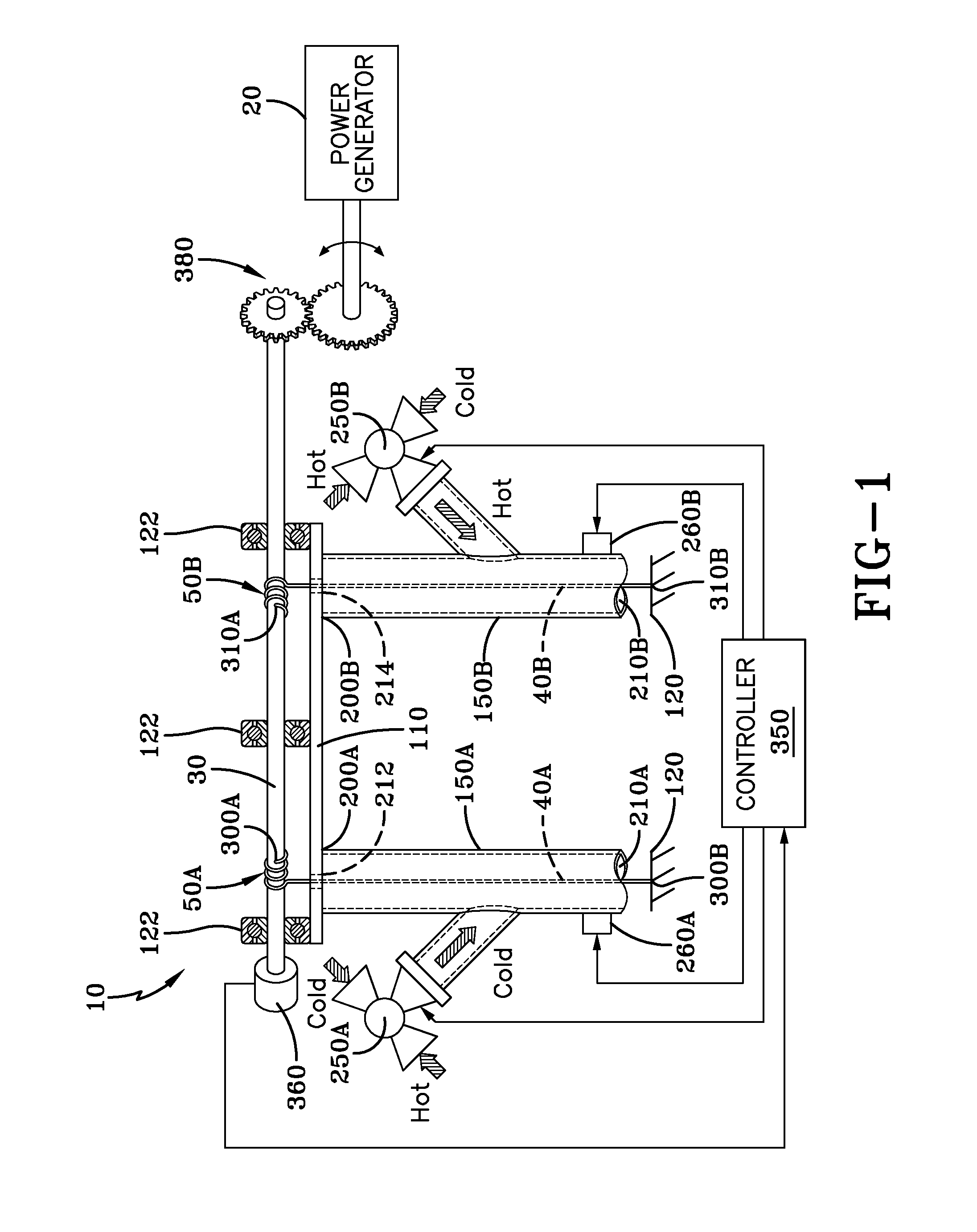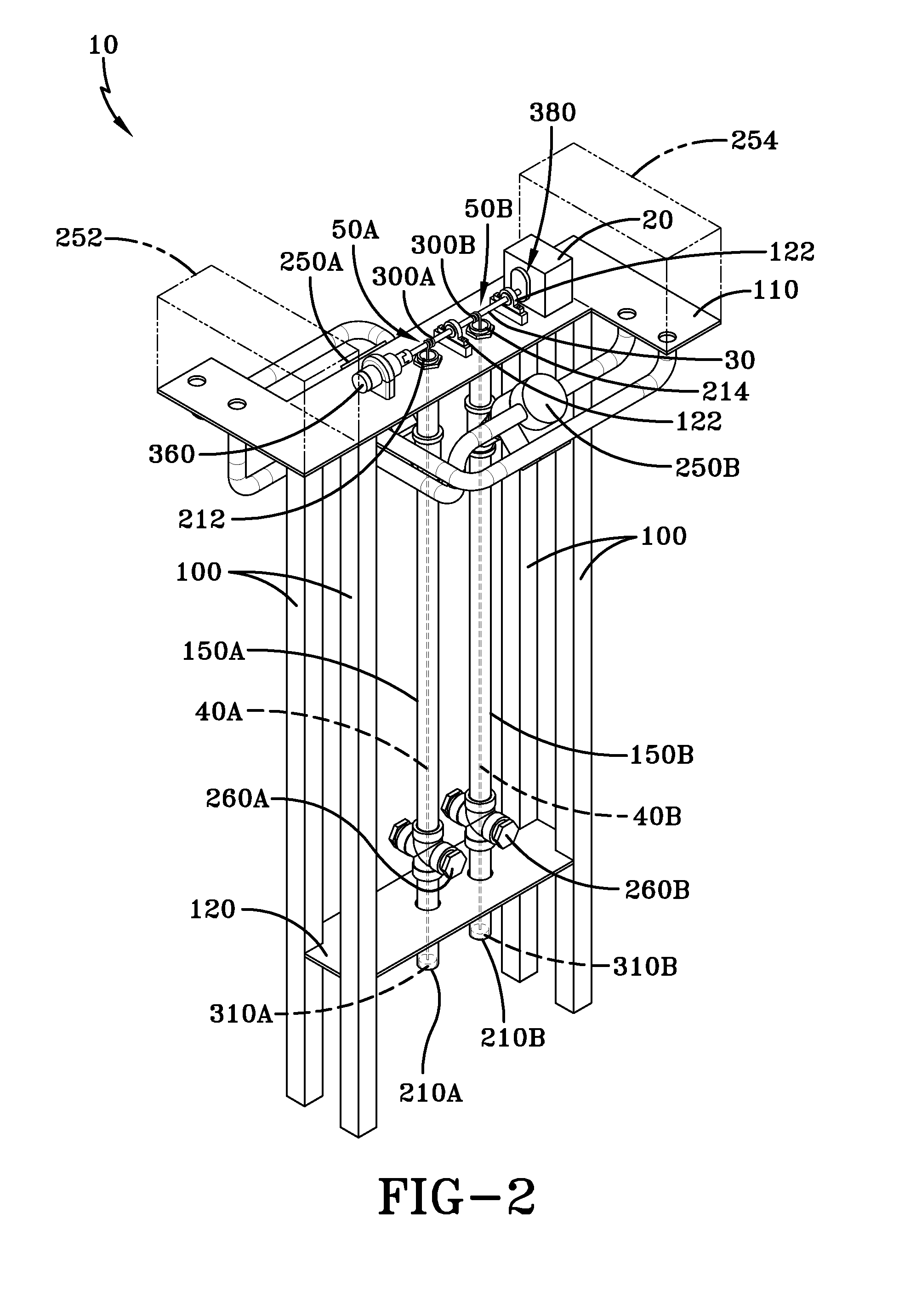Thermal energy harvesting system
a technology of thermal energy harvesting and energy harvesting, which is applied in the direction of closed-cycle machines/engines, hot gas positive displacement engine plants, etc., can solve the problems of ozone damaging greenhouse gas generation, large effort and cost, and difficulty in recovering and processing such non-renewable natural resources
- Summary
- Abstract
- Description
- Claims
- Application Information
AI Technical Summary
Benefits of technology
Problems solved by technology
Method used
Image
Examples
Embodiment Construction
[0029]A thermal energy harvesting system is generally referred to by numeral 10, as shown in FIGS. 1-4 of the drawings. The thermal energy harvesting system 10 includes a power generator 20 that is configured to generate electrical power or energy when a shaft 30 that is in mechanical communication with the generator 20 is rotated in either direction (e.g. clockwise or counterclockwise). Coupled to the shaft 30 is a first shape memory section 40A and a second shape memory section 40B, as shown clearly in FIGS. 1 and 2. For the purposes of the following discussion, the shape memory sections 40A-B are formed from any elongated section of shape memory material, shape memory alloy (SMA), or any other material that is capable of taking on one shape (e.g. expanded in length) when cooled and another shape (e.g. contracted in length) when heated. Continuing, one end of each of the shape memory sections 40A-B includes respective pre-shaped coil sections 50A-B, which may take on a coiled or h...
PUM
 Login to View More
Login to View More Abstract
Description
Claims
Application Information
 Login to View More
Login to View More - R&D Engineer
- R&D Manager
- IP Professional
- Industry Leading Data Capabilities
- Powerful AI technology
- Patent DNA Extraction
Browse by: Latest US Patents, China's latest patents, Technical Efficacy Thesaurus, Application Domain, Technology Topic, Popular Technical Reports.
© 2024 PatSnap. All rights reserved.Legal|Privacy policy|Modern Slavery Act Transparency Statement|Sitemap|About US| Contact US: help@patsnap.com










